Our (old)
Stereo View Sets
last worked on: August 6th, 2018 / composed in Netscape-4.7
-
.
-
Fast Find>> 5" card
viewers - Stereography -
Peg's
oil painting - My work -
-
.
-
* We've stopped selling views and I've backed away from
the 5 inch card format. They're certainly viable, commercially and for
amateurs, given the convenient access we have to photographic printers
like the Fuji Frontier system and several brands of excellent desktop ink
jet printers, but satisfactory 7 inch (card) print pairs can be printed
with common office type printers (using premium papers and appropriate
settings). However: my main objection to 5 inch is the lack of extended
legend and verso space --which my "T-5" format didn't
fix.
-
-
Traditional 7 inch card trimming and mounting (front and
back/verso) has been a labor of love, amply mitigated by the advent of
computer graphics and good printers. Still: the front and back must be
sized, trimmed and fitted to a mat board card. However, practice within
the Stereoscopic Society of America's
"Letterbox Circuit"
has developed an answer to all that, which only requires printing one
side of a single sheet of premium paper: the "bifolder".
-
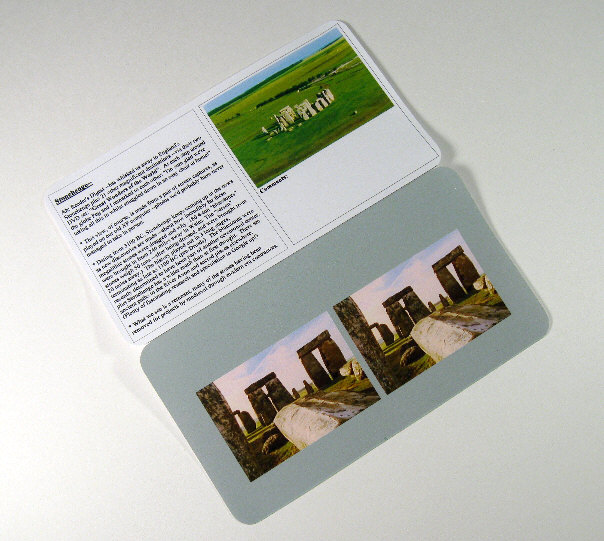
-
The sheet is composed to a prepared format, printed, cut
within printed lines, folded, and corner rounded.
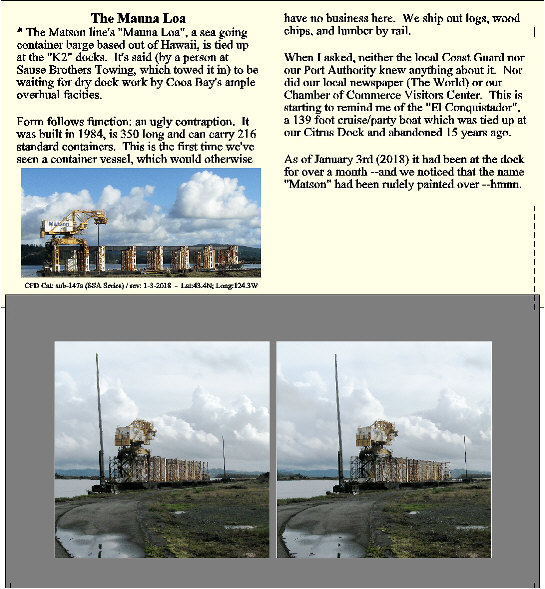
-

-
Set 03.11: San Francisco "c"
-
View-02: Golden Gate Bridge At Dusk
-
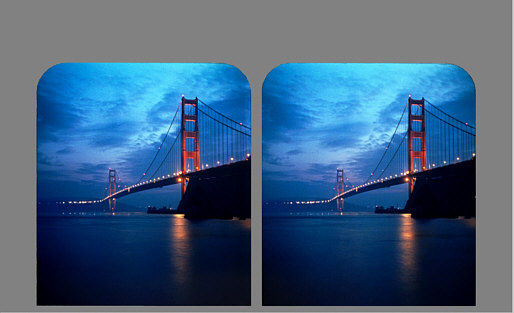
-
.
-
.
-
.
-
Set 08.30: Oregon - Central Coast "c"
-
View-11: Yachats' Lava Rock Bridges
-
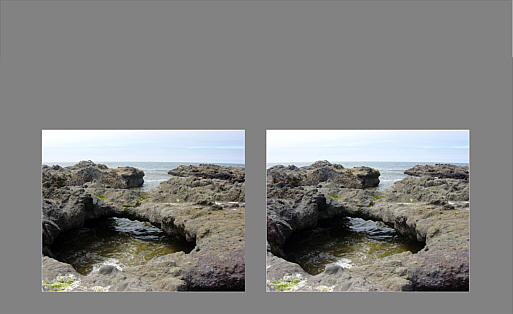
-
.
-
.
-
.
-
Set 08.31: Oregon - Central Coast "d"
-
View-10: Bliss' Hot Rod Grill
-
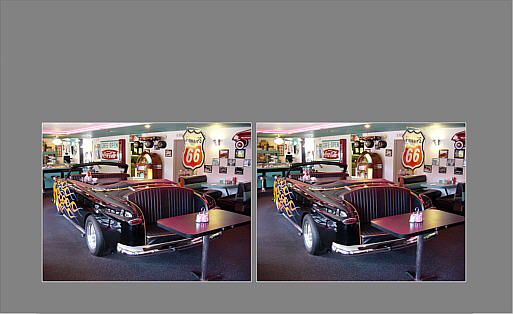
-
.
-
.
-
.
-
Set 08.32: Oregon - General Coast & Shipwrecks "a"
-
View-05: The Classic Shipwreck (Peter Iredale)
-
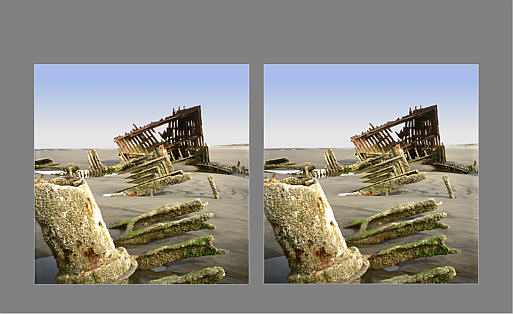
-
.
-
.
-
View-08: Wave Action
-
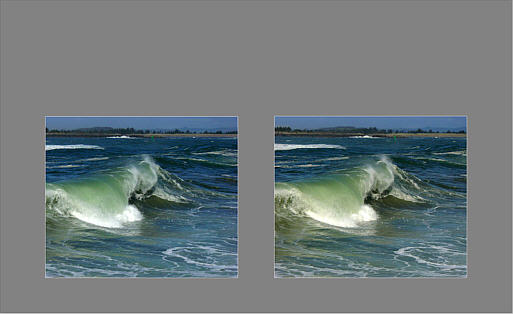
-
.
-
.
-
.
-
Set 08.41: Oregon - Shore Acres
-
View-01: Garden & Lily Pond
-
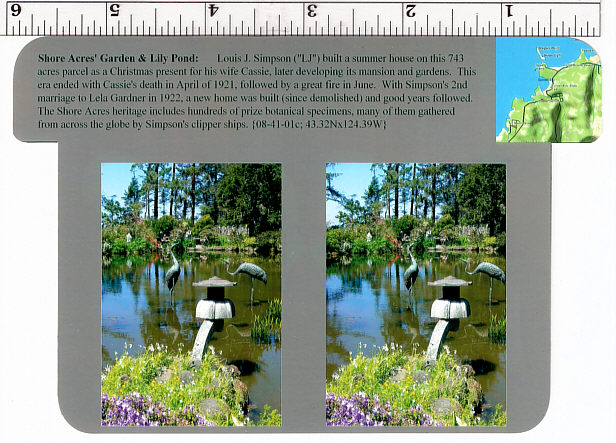
-
(This is the new "T-5" format. The ruler is for size,
-
in case your display/monitor is different. In the
-
old format, the legend is on the back side or "verso".)
-
.
-
.
-
.
-
Set 08.51: Oregon - Bastendorf
-
View-01: Bastendorf Area and Coos Head
-
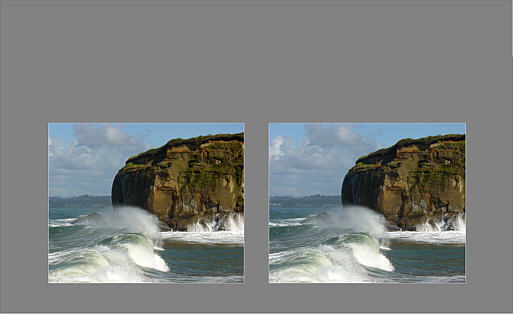
-
.
-
.
-
.
-
Set 08.52: Oregon - Sunset Bay
-
View-01: A Placid Park Scene
-
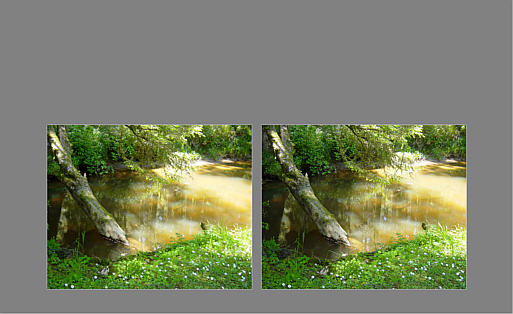
-
.
-
.
-
.
-
Set 08.53: Oregon - Charleston
-
View-01: Charleston Docs (& verso)
-
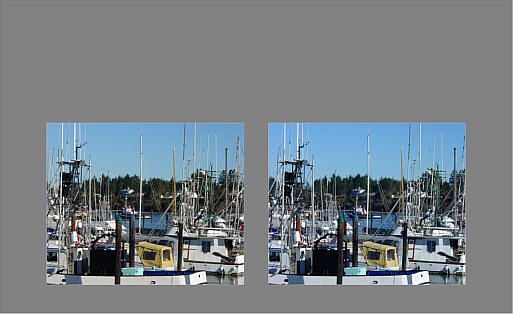
-

-
.
-
.
-
.
-
Set 14.02: Oregon - North Bend Fire & Rescue
-
View-01: NBF&R's New Pumper
-
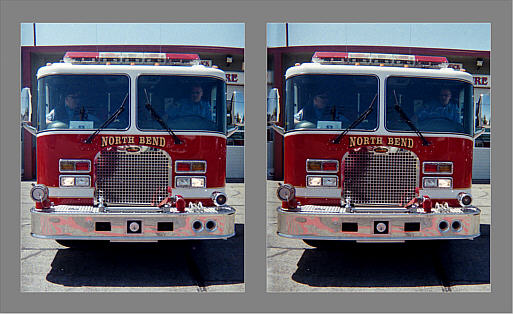
-
.
-
.
-
.
-
Set 44.01: Stereoradiogram Series
-
View-01: Stereoradiograms
-
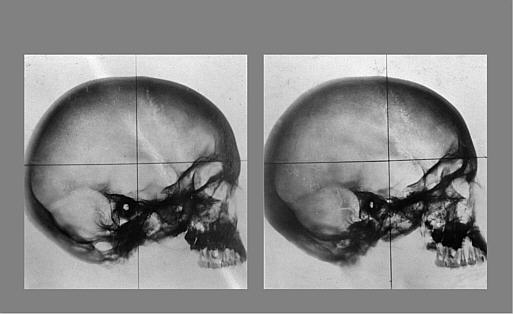
-
.
-
.
-
View-02: A Simulated Stereo X-ray Pair
-
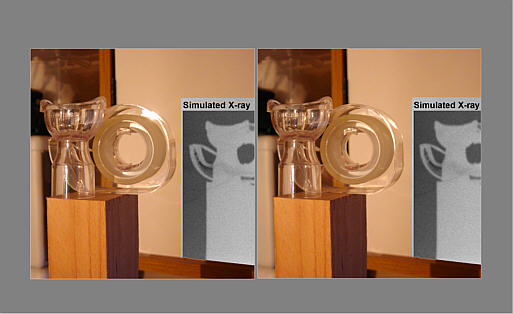
-
The foreground subject is illuminated with a single, clear, straight
filament incandescent lamp, which
-
casts a shadow image onto the background card --which I've inverted
(white for dark). Notice that
-
the shadow is in stereoscopic relief.
-
.
-
.
-
.
-
View-03: Another X-ray Simulation Setup
-
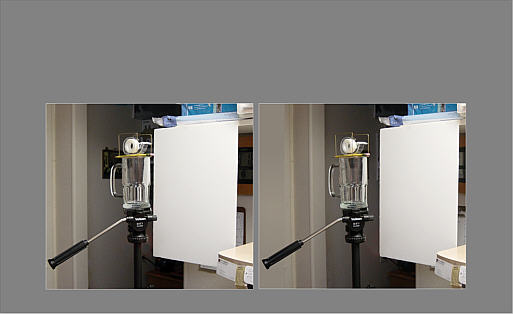
-
.
-
.
-
View-04: (5" lateral source head displacement)
-
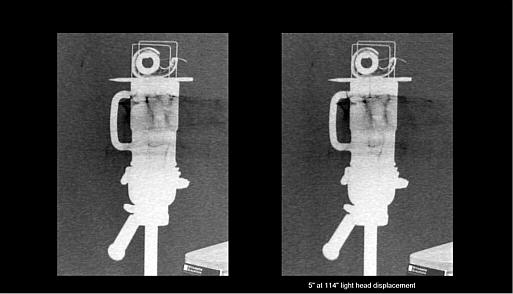
-
.
-
.
-
View-06: (2.5 degrees subject rotation)
-
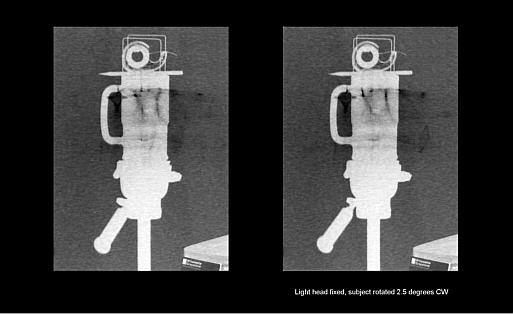
-
The point I'm trying to make: rotations in excess of about 3 degrees
aren't
-
needed, plus they result in distorted stereoscopic perspective. If possible,
-
X-ray head lateral displacement (perhaps 1:15 the distance) should be
used instead.
-
.
-
.
-
View-07: (5 degrees subject rotation)
-
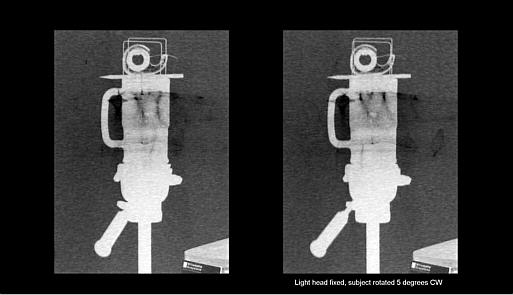
-
.
-
.
-
View-08: (10 degrees subject rotation)
-
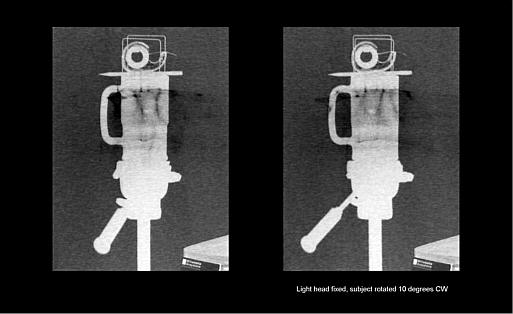
-
.
-
.
-
.--------------------------------.
-
My Work (2018b):
-
-
Some attractions of print pairs are simply due to their
being stereoscopic: a fascinating play of perspective, an ethereal feeling
of having "presence" in another time and place. There are subtleties
as well: a graceful balance between a moment of life on the front of the
card and its interpretation on the verso, a felt connection with the subject
and the stereographer.
-
-
The view card (or "folder") in your hand is a mixed medium
with power, reach, and an inherent poetry. Print pair stereography
is an art form to contend with, worthy of both lighthearted and serious
practice.
-
-
With these strengths, print pair views do well as a humble
witness to life. Simply match appealing images with well edited thoughts
on worthwhile subjects. The medium itself carries my ordinary efforts
with its engaging illusion and recognition of life. Each card completion
becomes a self-documented cultural artifact, registration for a visual
delight or bit of history, and another portal to the Nature and human endeavors.
-
-
And as life rushes by, new images and mental abstractions
of old ones quickly displace the few visual experiences we even try to
focus on --like the press of so many curiosity seekers gathering to the
scene of a happening. But in the view card's stillness, we can find
the personal time to clearly see and "take in" --perhaps a detail made
visible only through stereography, the seeming reality of a scene otherwise
lost to living eyes, --a face: still fresh and earnest in the warm light
of a distant summer.
-
-
Craig
-
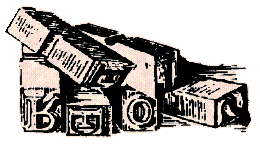
-







































